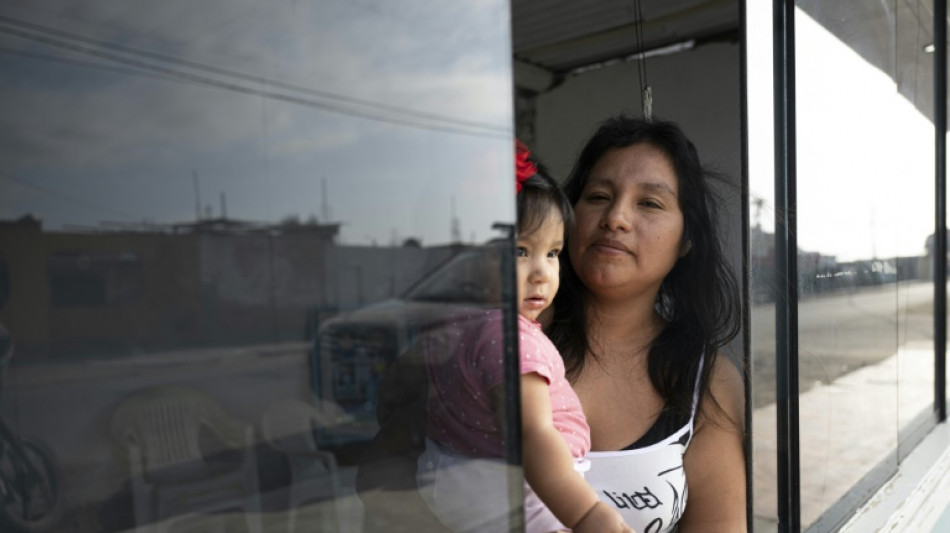
-
 Jobe Bellingham finding his feet as Dortmund head to City
Jobe Bellingham finding his feet as Dortmund head to City
-
US civil trial to hear opening arguments on Boeing MAX crash
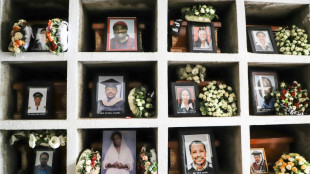
-
 Jamie Melham on Half Yours only second woman to win Melbourne Cup
Jamie Melham on Half Yours only second woman to win Melbourne Cup
-
Myanmar scam hub sweep triggers fraudster recruitment rush
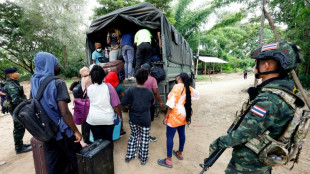
-
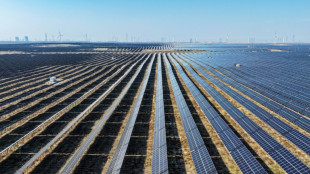 Biggest emitter, record renewables: China's climate scorecard
Biggest emitter, record renewables: China's climate scorecard
-
Floods strand people on roofs as typhoon pounds Philippines
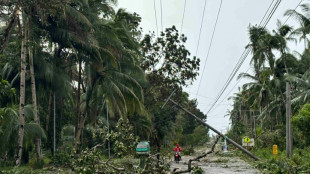
-
 Asian markets swing as trades eye tech rally, US rate outlook
Asian markets swing as trades eye tech rally, US rate outlook
-
South Korea to triple AI spending, boost defence budget

-
 Trott to leave as Afghanistan coach after T20 World Cup
Trott to leave as Afghanistan coach after T20 World Cup
-
Late queen's fashion to go on show at Buckingham Palace
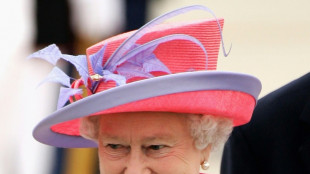
-
 In Morocco, exiled Afghan women footballers find hope on the pitch
In Morocco, exiled Afghan women footballers find hope on the pitch
-
EU scrambles to seal climate deal ahead of COP30
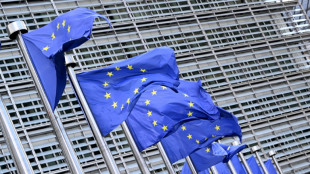
-
 New Yorkers expected to pick leftist Mamdani in stunning election
New Yorkers expected to pick leftist Mamdani in stunning election
-
Pining for Pinochet: how crime fanned nostalgia for Chile's dictator
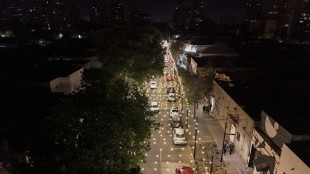
-
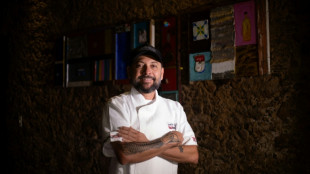 Why an Amazon chef said no to a vegan dinner for Prince William event
Why an Amazon chef said no to a vegan dinner for Prince William event
-
Cement maker Lafarge on trial in France on charges of funding jihadists
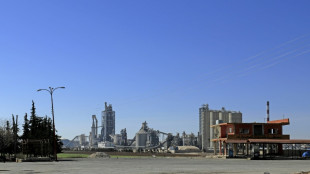
-
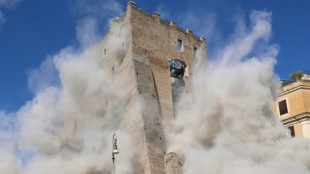 Worker dies after medieval tower partly collapses in Rome
Worker dies after medieval tower partly collapses in Rome
-
Run-machine Labuschagne in form of his life ahead of Ashes

-
 Prince William plays football, volleyball in Rio on climate trip
Prince William plays football, volleyball in Rio on climate trip
-
Jamaicans mobilize aid in aftermath of Melissa's wreckage
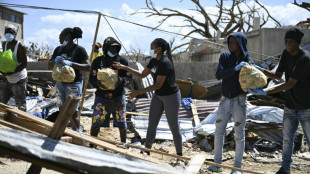
-
 Starbucks cedes China control to Boyu Capital
Starbucks cedes China control to Boyu Capital
-
'Wild at Heart' actress Diane Ladd dies at 89

-
 Xhaka lifts Sunderland into fourth after Everton draw
Xhaka lifts Sunderland into fourth after Everton draw
-
Brazil records biggest annual fall in emissions in 15 years: report
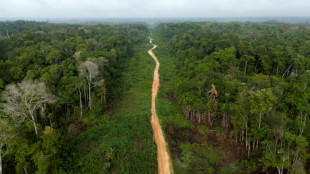
-
 Victor Conte, mastermind of BALCO doping scandal, dead at 75: company
Victor Conte, mastermind of BALCO doping scandal, dead at 75: company
-
Trial opens in 1st US civil case on 2019 Boeing MAX crash
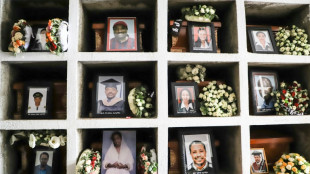
-
 Barrett brothers out of All Blacks' clash with Scotland
Barrett brothers out of All Blacks' clash with Scotland
-
Medieval tower partially collapses in Rome, trapping worker
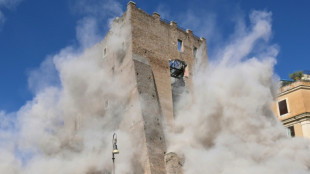
-
 Arsenal's Arteta says injured Gyokeres out of Slavia Prague tie
Arsenal's Arteta says injured Gyokeres out of Slavia Prague tie
-
Alonso says 'quality' Wirtz helped get him Real Madrid job

-
 US Fed's Cook warns inflation to stay 'elevated' next year
US Fed's Cook warns inflation to stay 'elevated' next year
-
Blue heaven: huge crowds salute Los Angeles Dodgers in victory parade

-
 Dutch centrist Jetten clinches election win: final tally
Dutch centrist Jetten clinches election win: final tally
-
Mamdani extends olive branch to anxious NY business community

-
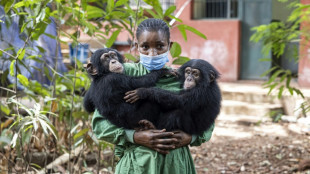 Sierra Leone chimpanzee sanctuary reopens after deforestation protest
Sierra Leone chimpanzee sanctuary reopens after deforestation protest
-
Shein bans sex dolls after France outrage over 'childlike' ones

-
 England full-back Steward doubtful for Autumn rugby clash with Fiji
England full-back Steward doubtful for Autumn rugby clash with Fiji
-
Bayern know how to 'hurt' PSG, says Neuer

-
 Rybakina downs Swiatek to reach WTA Finals last four
Rybakina downs Swiatek to reach WTA Finals last four
-
Ex-France international Ben Yedder to stand trial on rape charges

-
 Djokovic confirmed for ATP Finals, says Italian federation boss
Djokovic confirmed for ATP Finals, says Italian federation boss
-
Trent should be remembered for 'great' Liverpool moments, says Slot

-
 Stock markets diverge despite boost from AI deals
Stock markets diverge despite boost from AI deals
-
Prince William awed by Rio on climate-focused trip to Brazil
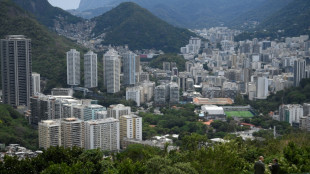
-
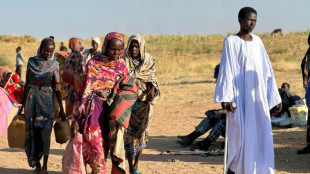 Violence in Sudan's El-Fasher could be war crimes, says top court
Violence in Sudan's El-Fasher could be war crimes, says top court
-
Rybakina downs Swiatek in WTA Finals

-
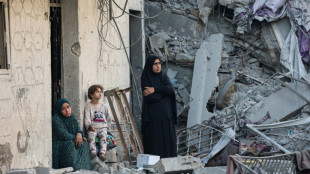 Turkey, Muslim allies say Palestinian self-rule key to Gaza future
Turkey, Muslim allies say Palestinian self-rule key to Gaza future
-
Tens of thousands shelter as typhoon slams into Philippines
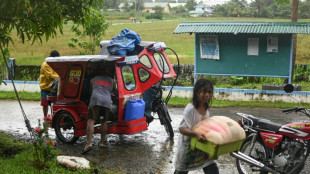
-
 Stock markets rise as tech sector buoyed by fresh AI deal
Stock markets rise as tech sector buoyed by fresh AI deal
-
Vitinha says PSG-Bayern Champions League clash will show who's 'best'


Poisoned by arsenic, and with no way out, Peruvians live in fear
Sayuri Moreno found out while pregnant that her body was contaminated with arsenic, but could not afford doctors' advice to avoid breastfeeding and leave her home in a mining area in northern Peru.
The 37-year-old is one of 120 residents of the Huarmey slums in the Ancash department who were found to have high levels of arsenic in their blood when 140 people were tested last year, according to the Ministry of Health.
Some 3,000 live in this community of wooden houses facing the sea, most of them living off fishing. Behind the settlement rise the hills through which underground pipelines descend, transporting copper and zinc concentrate to Port Huarmey.
Arsenic -- a highly toxic chemical -- can be found naturally alongside copper ore and is released as a byproduct of its processing. Arsenic can also naturally contaminate groundwater.
Peru is the world's second-largest copper producer, however health authorities say they have yet to determine whether the widespread contamination in Huarmey is linked to mining operations.
Most of those affected are women and children. The poisonous chemical can cause skin lesions and cancer, mainly of the lungs, skin and bladder.
"I was scared because I heard that it caused cancer," said Moreno, who was diagnosed during a pre-natal checkup.
- 'Abandoned' -
Her children, Keity, 11, and Iker, 7, also tested positive for high levels of arsenic. Her 11-month-old, Valeria, "was born normal."
The doctor recommended "that we get out of here and that I don't breastfeed my baby," Moreno told AFP.
But like many residents in the region, she and her fisherman husband, Alan Guerrero, were not in a financial position to follow this advice to the letter.
They left Port Huarmey for three months to "detox," but had to return after finding no other work. When they have the money they buy bottled water and formula for the baby.
"We are abandoned in the port, we have no help from anyone, we have a mining industry that is so powerful that we can't do anything," said Guerrero.
Inorganic arsenic is the biggest "chemical contaminant" of drinking water, according to the World Health Organization (WHO), which classifies it as a carcinogen and one of the 10 most dangerous substances for public health.
Jose Saldivar, director of the Huarmey Hospital, said the number of those affected in the community and the levels of arsenic in their bodies was "worrying."
"Every time we do more screening, it is likely that 80 percent" of the cases will come out positive for high levels of arsenic, he said.
Peru's health ministry says the maximum amount of arsenic in the body should be 20 micrograms per liter of urine.
Moreno had 60 micrograms, her eldest daughter, 81 micrograms and her son 70 micrograms.
- 'There is no cure' -
The WHO estimates 140 million people across the globe are exposed to drinking water containing high levels of arsenic.
"There is no cure," said Percy Herrera, a heavy metals expert at the health ministry.
"The best intervention is to identify what the source is and control this source," he added.
When Mireya Minaya was pregnant she was found to have 142 micrograms of arsenic per liter of urine. Her baby, Danna, was born contaminated.
But her three-year-old son, Fabricio, who suffers from anemia, has an even higher concentration: 540 micrograms.
Given the number of cases in Huarmey, the government last year paid for those affected to be treated in Lima, 290 kilometers (180 miles) away.
Minaya was hospitalized for 10 days. Doctors discovered tumors in her ovaries that they told her were probably malignant.
"I didn't want to know anything out of fear and I asked for my voluntary discharge and I came back" to the port, said Minaya, who is a restaurant cook.
"We lived normally... and from one moment to the next we had this nightmare. We don't know if it will ever end."
S.Gantenbein--VB




